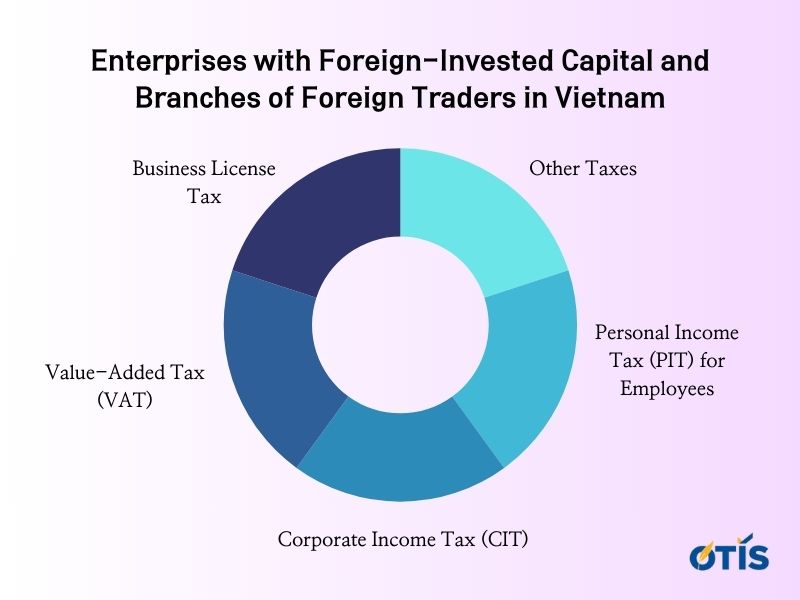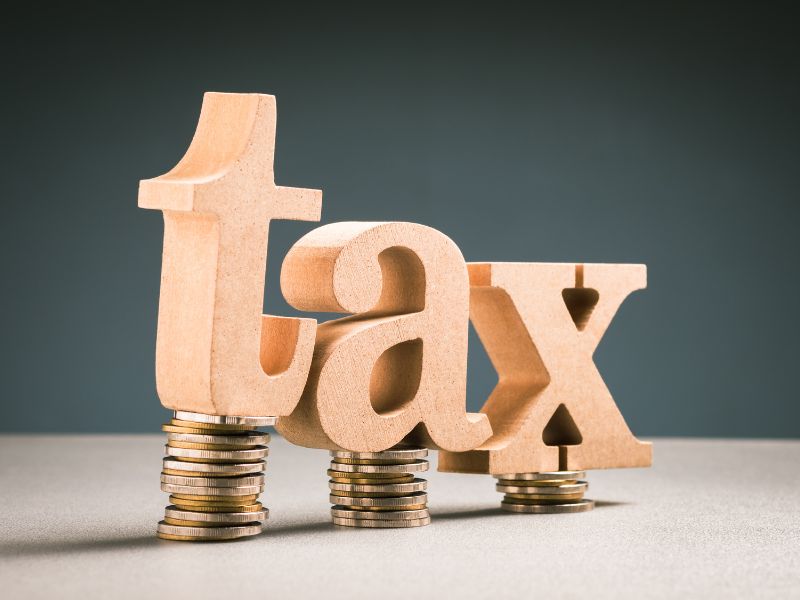Before deciding to invest in Vietnam, investors usually explore suitable forms of investment and presence, related incentive policies, and obligations to be fulfilled when conducting investment activities in Vietnam. According to Decree No. 152/2020/ND-CP, depending on the form of investment, investors may have various types of commercial presence in Vietnam, such as economic organizations with foreign-invested capital; representative offices, branches of foreign traders in Vietnam; and executive offices of foreign investors in business cooperation contracts. So, what tax policies should these commercial presences consider when operating in Vietnam? Let’s explore with OTIS LAWYERS in the following article!
Executive Offices of Foreign Investors in Business Cooperation Contracts (BCC)
Executive offices of foreign investors in BCCs are established to recruit labor, sign contracts, and conduct business activities within the rights and obligations specified in the BCC and the certificate of registration for establishing executive offices. A BCC is a contract signed between investors to cooperate in business, share profits, and distribute products according to legal regulations without forming an economic organization. Point n, Clause 3, Article 5 of Circular 78/2014/TT-BTC regulates the determination of revenue for calculating taxable income in BCCs. Depending on the agreement in the contract, the parties will determine the responsibility for declaring and paying value-added tax (VAT), personal income tax (PIT), and corporate income tax (CIT). Therefore, executive offices will handle the declaration and payment of VAT, PIT, and CIT for foreign investors as appropriate. Additionally, to accurately determine tax obligations, investors should also consider Double Taxation Avoidance Agreements between Vietnam and the relevant countries.
Representative Offices of Foreign Traders in Vietnam
Business License Tax
According to Clause 2, Article 44 of the Law on Enterprises 2020: A representative office is a dependent unit of an enterprise, responsible for representing the enterprise’s interests and protecting those interests. A representative office does not perform the business functions of the enterprise. Business activities involve continuously carrying out one, several, or all stages of the process from investment, production to consumption of products or provision of services in the market for profit purposes. According to Decree 139/2016/ND-CP and Decree 22/2020/ND-CP on business license tax, representative offices involved in the production, trading of goods, and services must pay business license tax. If there are production and business activities, the representative office will declare and pay business license tax; if there are no such activities, they are exempt from this tax.
Personal Income Tax
According to Articles 17 and 18 of the Commercial Law, a representative office can lease premises, hire or purchase necessary means and equipment for its activities; recruit Vietnamese and foreign employees to work at the representative office according to Vietnamese law. The representative office cannot directly generate profit in Vietnam and can only conduct promotional activities within the limits allowed by the Commercial Law. It cannot sign, amend, or supplement contracts of the foreign trader, except when the head of the representative office has a legal power of attorney from the foreign trader. Hence, the representative office must fulfill the obligations of withholding, declaring, and paying personal income tax for its employees and corporate income tax (contractor tax, if required by the parent company).
Enterprises with Foreign-Invested Capital and Branches of Foreign Traders in Vietnam
A branch is a dependent unit of an enterprise, responsible for performing all or part of the enterprise’s functions, including the representative function by authorization. The branch’s business sectors must match those of the enterprise. Therefore, the taxes and fees for foreign-invested enterprises and their branches in Vietnam are similar. Unless the branch’s scope of business is narrower, resulting in a corresponding reduction in tax obligations.
Essentially, enterprises/branches operating in Vietnam will incur the following types of taxes and fees:

Business License Tax
According to Article 2 of Decree 139/2016/ND-CP on business license tax:
“1. Enterprises established according to law.
…
6. Branches, representative offices, and business locations of the organizations mentioned in Clauses 1, 2, 3, 4, and 5 of this Article (if any).”
Value-Added Tax (VAT)
According to Clause 3, Article 3 of Circular 219/2013/TT-BTC on VAT payers:
“Foreign-invested enterprises and foreign parties in business cooperation under the Law on Foreign Investment in Vietnam (now the Investment Law); organizations, individuals conducting business in Vietnam without establishing a legal entity in Vietnam;”
Therefore, foreign-invested enterprises and branches of foreign companies are VAT payers.
Corporate Income Tax (CIT)
According to Clause 1, Article 2 of Circular 78/2014/TT-BTC on CIT payers:
“1. CIT payers are organizations engaged in the production and trading of goods and services with taxable income (referred to as enterprises), including:
a) Enterprises established and operating under the Law on Enterprises, the Law on Investment, …
Permanent establishments of foreign enterprises are production and business facilities through which foreign enterprises conduct part or all of their production and business activities in Vietnam, including:
– Branches, executive offices, factories, workshops, means of transport, mines, oil or gas fields, or other places of extraction of natural resources in Vietnam.”
Personal Income Tax (PIT) for Employees
According to the Law on Personal Income Tax 2007, amended in 2012, and guiding documents: Organizations and individuals are responsible for withholding tax when paying income to individuals (if any) and declaring and paying that tax according to legal regulations.
Other Taxes
In addition to the basic taxes mentioned above, depending on their business activities, foreign-invested enterprises and branches of foreign companies may have to pay other taxes such as import-export tax, natural resource tax, special consumption tax, environmental protection tax, etc.
For any questions or comments, please contact:
OTIS AND PARTNERS LAW FIRM
Office address: 2nd Floor, CT3 Building, Yen Hoa Park View Urban Area, No. 3 Vu Pham Ham Street, Yen Hoa Ward, Cau Giay District, Hanoi
Email: info@otislawyers.vn
Hotline: 0987748111


 Tiếng Việt
Tiếng Việt 한국어
한국어 中文 (中国)
中文 (中国)